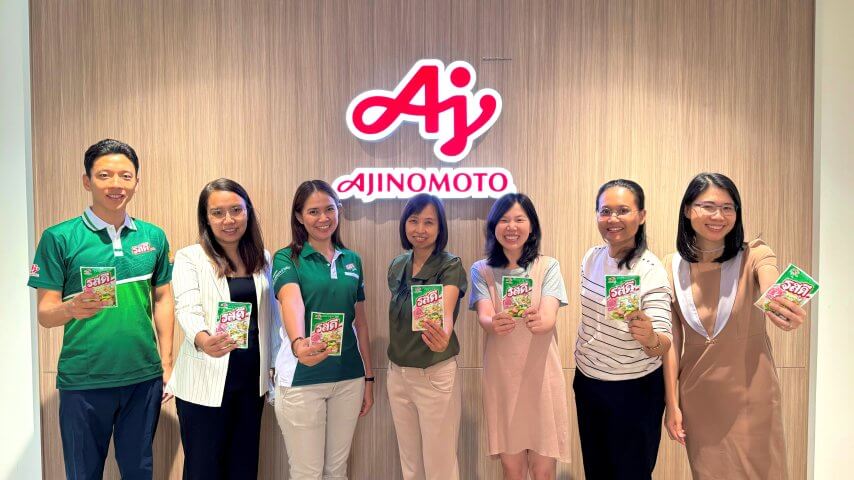Reading Time: 4 minutes

Table of Contents
Umami Hunter in Nigeria (short version)
Beans are a staple of many cuisines worldwide. This humble legume is also one of the longest-cultivated plants in the world, with a history in Asia stretching back 9,000 years. High in protein, complex carbohydrates, fiber, and iron, beans provide essential amino acids and nutrients. Moreover, fermentation improves their digestibility and shelf life, removes natural toxins, and enhances flavor. Fermented beans like Japanese natto, Chinese douchi, and Indonesian tempeh are found throughout Asia and form the basis for umami seasonings like soy sauce and miso.
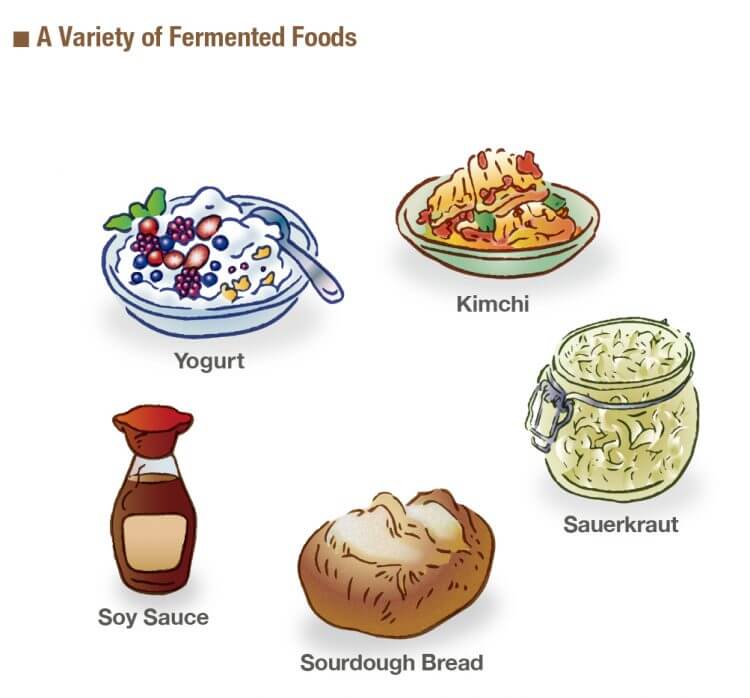
Kenichi Kobayashi, a Japanese food scientist with the Ajinomoto Group and self-styled “umami hunter,” knew a lot about fermentation when he arrived in Nigeria in 2015 to join AJINOMOTO FOODS NIGERIA LTD., local supplier of the Group’s umami seasoning AJI-NO-MOTO®. But he knew nothing about Nigerian food. “The food here is nothing like what I grew up eating,” says Kobayashi. “At first, it seemed to me Nigerians perceived taste very differently. But our tongues are exactly the same, so I thought if I ate enough Nigerian food I should be able to appreciate the local flavors.” He traveled widely, honing his taste buds with the goal of helping AJINOMOTO FOODS NIGERIA LTD.’s local staff develop new seasoning products for the Nigerian market.
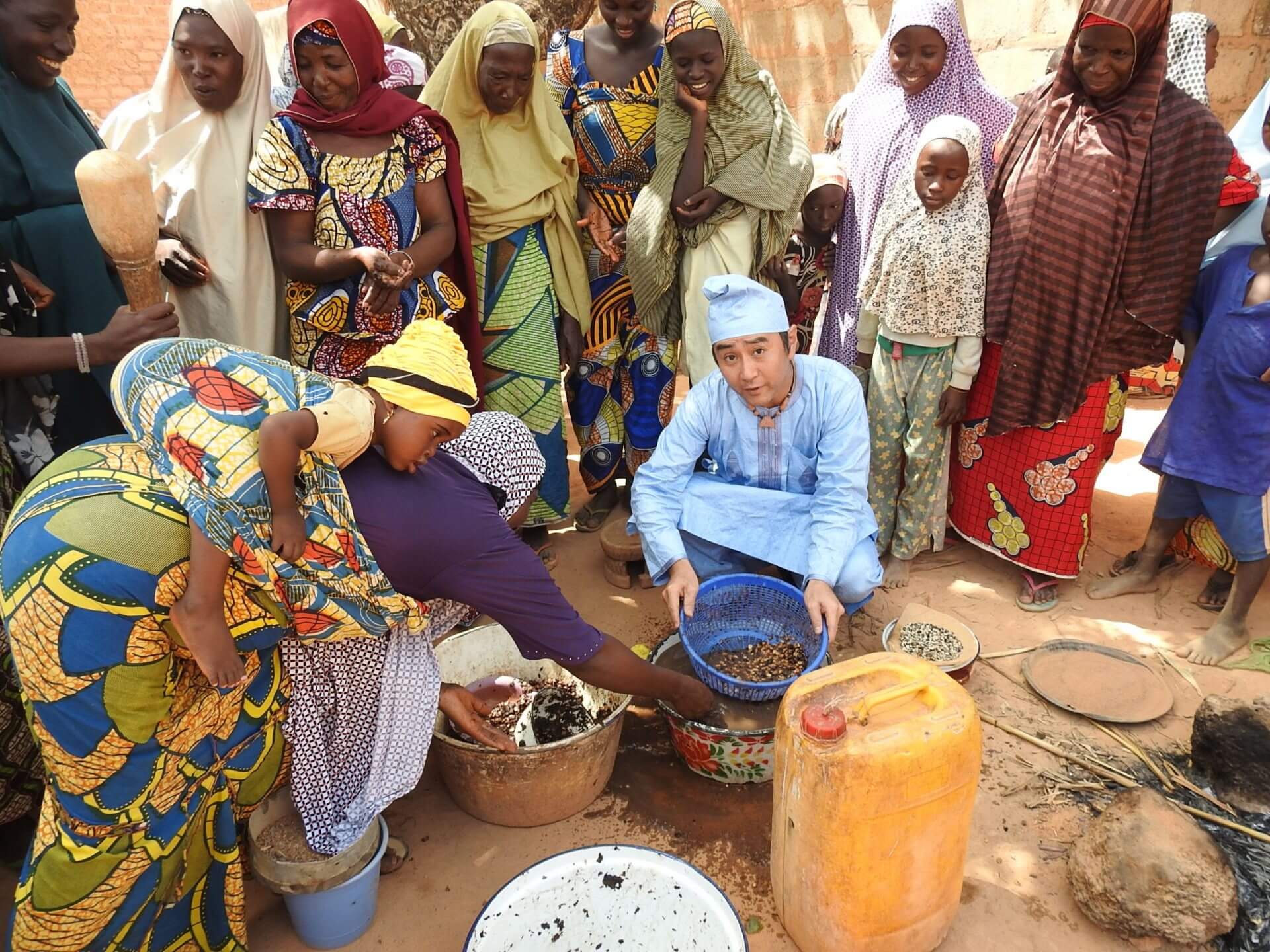
Kenichi Kobayashi, in the middle, retrained his taste buds by exclusively eating local Nigerian food every single day.
One day, a staff member from the state of Kano in rural northern Nigerian told Kobayashi about daddawa, an umami seasoning added to soups, stews, and other dishes, not unlike miso. daddawa consists of locust beans that are boiled, wrapped in leaves to ferment, then ground and rolled into balls of paste. The whole process, as Kobayashi learned, takes many days and is performed exclusively by women at home, usually outdoors under less than sanitary conditions. Grit and other impurities are common and the pungent smell attracts flies. With no commercially available version, Kobayashi and the AJINOMOTO FOODS NIGERIA LTD. R&D team realized that daddawa presented both a business opportunity and a chance to better people’s lives through labor-savings and improved hygiene.
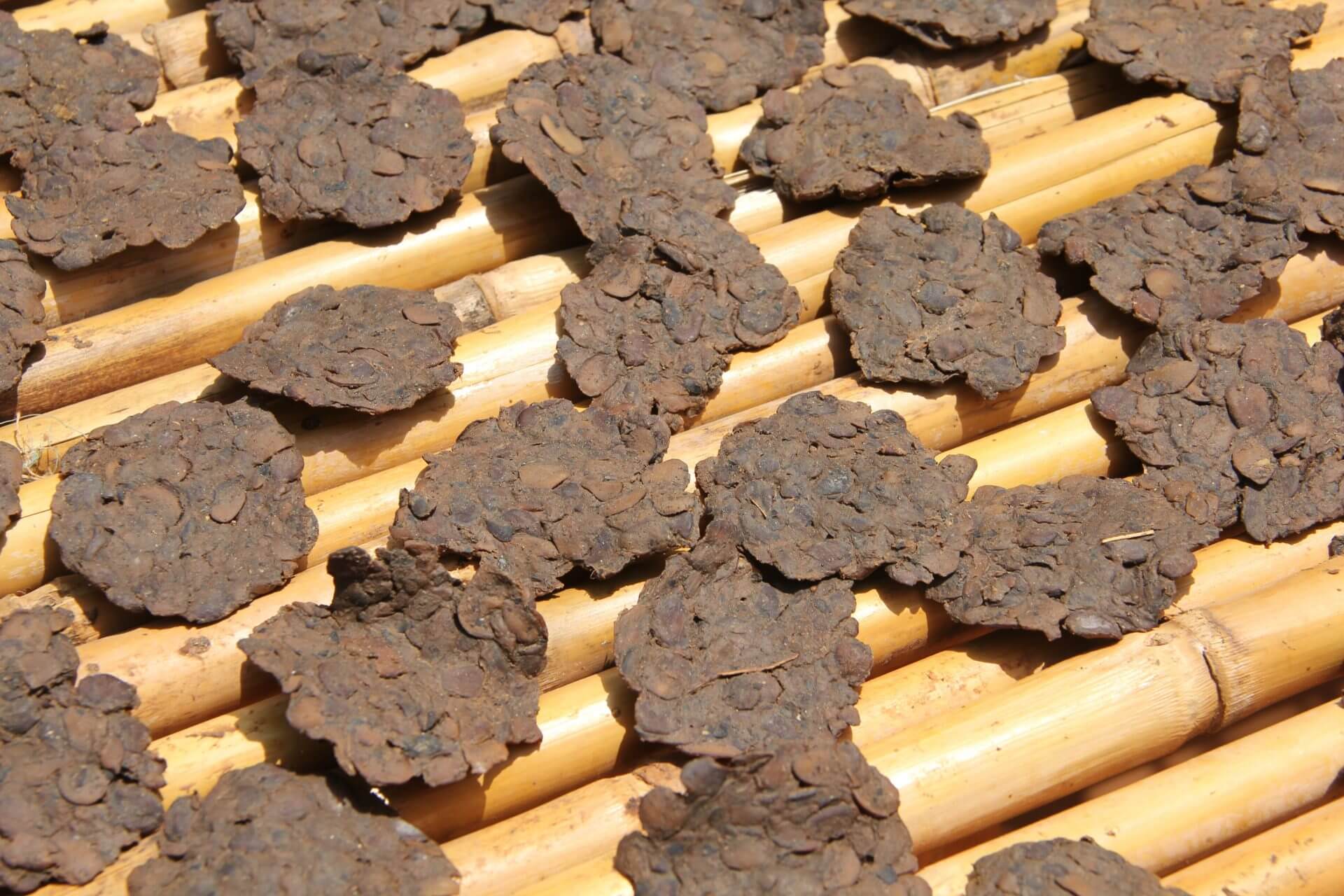
Daddawa, an umami seasoning with the pungent smell, is very popular in Nigeria and other parts of Africa.
The team set about making daddawa under controlled, sanitary factory conditions. This entailed overcoming many hurdles, including procuring an adequate supply of local raw materials, establishing the right steaming and fermentation method, fabricating industrial-scale milling machines, designing and testing suitable packaging, and launching an effective marketing campaign. The final commercial product, DeliDawa™, a dry powder hermetically sealed in single-use sachets storable for long periods, quickly gained acceptance by consumers as superior in taste to the daddawa sold in local markets, at an affordable price.
Nigeria is a large country with limited resources facing many challenges around health and nutrition. Development is bringing rapid change, as convenient foreign products replace traditional ones. “Our goal is to improve people’s lives by creating products rooted in the local cuisine,” says Kobayashi, “not just to replace them with new products from outside.” Umami seasonings similar to daddawa exist in other parts of Nigeria and Africa, meaning DeliDawa™ might someday spread to dining tables across the continent, and indeed even take its place alongside soy sauce and miso in kitchens around the world.
AJINOMOTO FOODS NIGERIA LTD. is continuing to develop original, locally-relevant food seasonings made from domestic raw materials with the aim of helping people throughout the West Africa region eat well and live well.

AJINOMOTO FOODS NIGERIA LTD team members holding DeliDawa™, a dry powder hermetically sealed in single-use sachets storable for long periods.
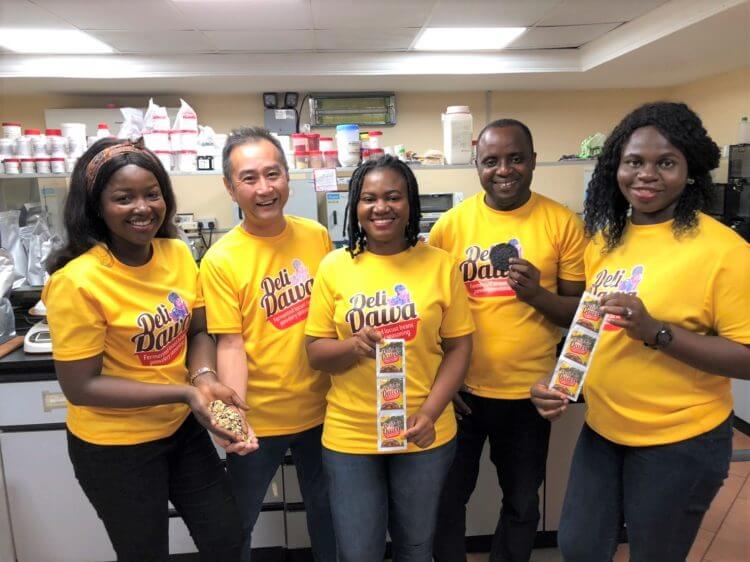
For more infomation
A behind-the-scenes look at the story of DeliDawa™
Stories you may like

From manga to manger: gyoza take France by storm
- Food & Wellness
- Health and Well-being
- Innovation

The taste of history in the USA: stirring umami into the melting pot
- Food & Wellness
- Health and Well-being
- Innovation

How to eat for success: program for athletes benefits everyone
- Food & Wellness
- Health and Well-being
- Innovation



